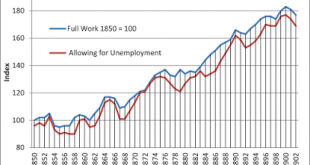Pubblichiamo la recensione a un libro di Giancarlo De Vivo uscita su Micromega online Tra Gramsci e Sraffa, il sodalizio fra due comunisti indisciplinati Sergio Cesaratto La figura di Piero Sraffa è perlopiù sconosciuta al grande pubblico italiano, persino a quello più colto; appena più fortunata è la figura di Antonio Gramsci. Eppure si tratta di due degli studiosi sociali più straordinari –i più straordinari – che il nostro Paese può vantare nel ventesimo secolo. Il volume di...
Read More »Gramsci, Sraffa e Marx: un commento di Screpanti
In questa bella, rigorosa e approfondita recensione Cesaratto sintetizza così bene gli argomenti sviluppati da de Vivo che verrebbe quasi voglia di dire: letta la recensione non c’è bisogno di leggere il libro. Ma non lo dirò, perché l’opera è veramente importante e va letta con attenzione. E consiglio di leggerla in parallelo con un'altra opera importante: P. Sraffa, "Lettere a Tania per Gramsci" (a cura di V. Gerratana), Editori Riuniti, Roma 1991. Il testo di de Vivo delucida...
Read More »Marx Capital turns 150
Marx's capital (Volume 1) was published September 14, 1867, exactly 150 years ago. Below a few links to posts on Marx written over the years.What makes capitalism capitalism? (on the definitions of capitalism as a mode of production) Sraffa and Marxism or the Labor Theory of Value, what is it good for? (on the labor theory of value) Was Marx right? Nice of you to ask, but... (on common misconceptions about Marx)A Note on the Concept of Vulgar Economics (an important idea, often...
Read More »What is the Case against Marxism in a Nutshell?
That is, what is the case against the actual theory presented by Karl Marx in volume 1 of Capital? This was the only volume of Capital that Marx published in his lifetime, and volume 3 contradicts volume 1 in important respects.First, we need to know what Marx actually argued in volume 1 of Capital.The essence of Marx’s theory and his conception of the historical tendency of capitalism is as follows:(1) Marx had an elaborate labour theory of value on which he founded volume 1 of Capital (see...
Read More »Economic Regularities and “Laws” and the Riksbank Prize too
I've been reading The Nobel Factor: The Prize in Economics, Social Democracy, and the Market Turn by Avner Offer, Gabriel Söderberg, an interesting critique of the use of the Nobel Prize to undermine the Welfare State, essentially by conservative groups in Sweden, that were influential within the Central Bank (Riksbank), that disliked the Social Democratic policies in place in the 1960s. I have been critical of the Riksbank prize before (see, for example, here or here; check also Lars...
Read More »How Capitalism is Killing Itself
[embedded content] Short documentary on the limits of capitalism mostly based on an interview by Richard Wolf. I find the simplistic explanation of exploitation at the end (around minute 27:30) based on the time of work (prices proportional to labor incorporated) to be problematic (for a discussion of the Labor Theory of Value, LTV go here). At any rate, worth watching whether you agree with Wolf's interpretation of Marx and capitalism or not.
Read More »Marx’s Dishonesty in his Quotation of Gladstone
In volume 1 of Capital in Chapter 25, Marx reproduces a selective quotation from William Gladstone on the condition of the working classes in England from a speech Gladstone gave in the House of Commons on 16 April 1863: “On April 16th, 1863, 20 years later, in the speech in which he introduced his Budget [sc. Gladstone said]: ‘From 1842 to 1852 the taxable income of the country increased by 6 per cent In the 8 years from 1853 to 1861 it had increased from the basis taken in 1853 by 20 per...
Read More »My Critical Summaries of Volume 1 of Marx’s Capital
Marx published volume 1 of Capital in German in 1867 (by the publisher Meissner of Hamburg), but this was the only volume of Capital, which was a proposed 4 volume work on economics, to be published in Marx’s lifetime. Volumes 2 and 3 were edited and published by Engels after the death of Marx. No English translation of volume 1 appeared in Marx’s lifetime either.In the summaries below, I have used these two translations of volume 1: Marx, Karl. 1906. Capital. A Critique of Political Economy...
Read More »Marx’s Capital, Volume 1, Chapter 33: A Critical Summary
Chapter 33 of volume 1 of Capital is called “The Modern Theory of Colonisation” and examines how capitalism is established in European colonies. This is the final chapter of volume 1 of Capital.By colonies, Marx means those countries with “virgin soils, colonised by free immigrants” (Marx 1906: 838, n. 1), such as America or Australia.Marx is concerned with the theory of Edward Gibbon Wakefield (1796–1862), an Englishman who helped to colonise New Zealand, and the author of England and...
Read More »Marx’s Capital, Volume 1, Chapter 32: A Critical Summary
Chapter 32 of volume 1 of Capital is called the “Historical Tendency of Capitalist Accumulation” and is essentially Marx’s conclusion to Capital, since Chapter 33 is more of an appendix and addendum to the volume (Brewer 1984: 83).Chapter 32 is therefore Marx’s summing up of his vision of the past and future of capitalism, and contains a famous – and discredited – doomsday prediction of the collapse of capitalism.The tendency of “primitive accumulation of capital” which Marx has described in...
Read More » Heterodox
Heterodox



